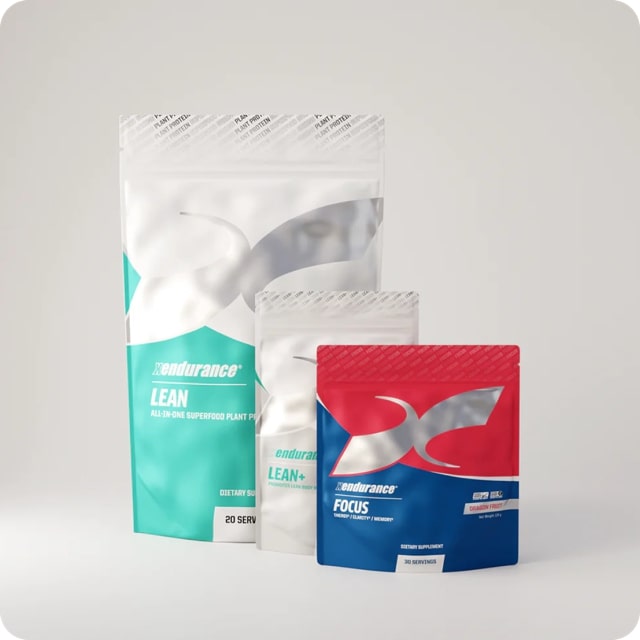Vitamin D, also known as the sunshine vitamin, plays a vital role in skin health. However, in recent years, vitamin D deficiency has become an epidemic. More people in the United States cannot meet their daily intake of this beneficial vitamin.
To understand the risks of vitamin D deficiency, let's look at why this vitamin is so important. By knowing the different vitamin D skin benefits, you may also feel more motivated to incorporate various sources of vitamin D in your daily life. The skin benefits of vitamin D are numerous and can significantly impact your overall skin health.
So, why is vitamin D so important for your skin? Here's what you need to know.
Does Vitamin D Help With Skin?
Overall Role of Vitamin D
Vitamin D is a fat-soluble secosteroid hormone. Its primary function is to regulate calcium and phosphorus homeostasis for optimal bone health. However, vitamin D is also involved in a wide range of biological processes.
Studies have found that vitamin D helps lower systemic inflammation and oxidative stress. As such, having adequate levels in the body may help protect against autoimmune and metabolic disorders. There is also growing evidence to support vitamin D's role in helping reduce the risk of certain cancers.
Vitamin D and Your Skin
There is a strong connection between vitamin D and the skin. It begins with exposure to the sun's UVB rays — which triggers skin cells to synthesize vitamin D. Understanding how vitamin D for skin works can help you make informed decisions about your skincare routine.
Once in its active form, vitamin D performs vital functions within the skin. This includes:
- Keratinocyte Proliferation and Differentiation: Vitamin D increases the skin barrier's structural components.
- Skin Barrier Maintenance: Vitamin D promotes ceramide production to restore barrier function after damage.
- Keratinocyte Apoptosis Prevention: Vitamin D helps prevents skin cell death due to tumor necrosis factor α (TNFα), UV radiation, and other harmful stimuli.
- Antimicrobial Peptide (AMP) Synthesis: Vitamin D regulates the synthesis of AMPs, which are vital in protecting against pathogens and antigens.
Vitamin D Skin Benefits
Here are the skin benefits associated with vitamin D. These benefits highlight why vitamin D is good for your skin and why it's essential to maintain adequate levels.
1. Helps Reduce Inflammation
The skin is our first line of defense against pathogens, environmental toxins, and other harmful stimuli. As such, skin cells are capable of immunomodulatory actions.
According to studies, vitamin D can help suppress skin inflammation, balance cytokine levels, and increase immunological tolerance.
Inadequate vitamin D levels are also associated with inflammatory skin conditions such as psoriasis, atopic dermatitis, acne, and melanoma.
By increasing vitamin D levels in the body, those with inflammatory skin conditions may also feel some symptom relief. In one study, patients with psoriasis or vitiligo who took 35,000 IU of vitamin D3 for six months saw significant improvements in their condition. This underscores the importance of vitamin D for skin benefits in managing such conditions.
2. Helps Protect Skin Barrier Function
Vitamin D stimulates keratinocyte and ceramide production, which helps enhance the structural integrity of the skin barrier — allowing it to function optimally.
With tighter junctions, the skin barrier becomes less impermeable. This reduces transepidermal water loss, which also means better moisture retention. In addition, the skin barrier is more capable of keeping out pathogens, toxins, and other harmful stimuli.
3. Helps Prevent Premature Aging
As an antioxidant, vitamin D can slow down oxidative stress caused by free radicals.
In the skin, oxidative stress has been found to promote collagen and elastin breakdown, impaired barrier function, and increase toxin sensitivity. This can lead to premature aging, which manifests as fine lines, wrinkles, texture changes, and hyperpigmentation.
Oxidative stress can also do a lot of damage internally. Studies have found that it plays a significant role in the development of various skin cancers and inflammatory conditions.
Having adequate vitamin D levels can promote a healthy aging process. It has photoprotective properties to help reduce the risk of oxidative stress-related diseases.
4. Helps Promote Skin Healing
Researchers have established a relationship between vitamin D deficiency and hard-to-heal wounds. In one study, diabetic participants who were supplemented with vitamin D for 12 weeks found a significant reduction in the length and depth of their leg ulcers.
This may be due to vitamin D's ability to stimulate AMP production. These antimicrobial peptides help create a protective layer on the skin's surface, which promotes wound healing and tissue repair.
5. Helps Regulate Sebum Production
Studies have found that vitamin D can inhibit the production of sebocytes or sebum-producing epithelial cells. In addition, vitamin D appears to inhibit Cutibacterium acnes (C. acnes), which promotes lipogenesis and sebum production.
With anti-inflammatory, antioxidant, and comedolytic properties, vitamin D may help support the optimal function of sebaceous glands. However, more studies are needed to explore the mechanisms and benefits of vitamin D on inflammatory acne.
Can a Vitamin D Deficiency Affect Your Skin?
As you can see, numerous skin benefits are associated with vitamin D. In the same vein, a vitamin D deficiency can lead to specific skin issues.
Some vitamin D deficiency symptoms include dry, itchy, and dehydrated skin; a dull complexion; fine lines and wrinkles; and increased sweating.
Insufficient levels of vitamin D are also associated with the following skin conditions:
- Psoriasis
- Atopic dermatitis or eczema
- Acne
- Hair loss
- Vitiligo
- Premature aging
Especially alarming, vitamin D deficiency has been linked to increased risk and a worse prognosis of various skin cancers, including melanoma.
Factors that Affect Vitamin D Deficiency
Your skin's ability to produce vitamin D may also be affected by the following factors:
- Location – Those furthest from the equator receive the least direct sunlight.
- Season – There is less sunlight in the winter and spring.
- Climate Conditions – Cloud cover and air pollution may reduce sun exposure.
- Time of Day – At the sun's highest point, you need less exposure to make enough vitamin D.
- Sunscreen – Sunscreen reduces UVB exposure and, in turn, vitamin D production.
- Melanin Content – Darker skin tones have less ability to synthesize vitamin D.
- Obesity – People with obesity have higher intake requirements for vitamin D.
- Age – Older adults have a reduced capacity to synthesize vitamin D
If one or more factors apply to you, you may have a higher risk of vitamin D deficiency.
How to Check If You're Vitamin D Deficient?
Many experts state that daily intake should not exceed 100 mcg or 4,000 IU to avoid potential side effects. However, doctors in the US are seeing very high levels of vitamin D deficiency in Americans and may suggest an even higher amount than 4,000 IUs per day.
The best way to know if you have a vitamin D deficiency is to have your health professional order a blood test periodically. Vitamin D adequacy is best determined by measurement of the 25-hydroxyvitamin D concentration in the blood.
How to interpret the results? Most health experts say the normal range is between 20 and 40 ng/mL. For others, it will be between 30 and 50 ng/mL. Hence, there can be slight differences in the results, so it's best to ask your doctor about this.
How to Prevent Vitamin D Deficiency
1. Sun Exposure
Even though sunlight is the most potent source of vitamin D, prolonged sun exposure can increase your risk of premature aging and skin cancer.
Experts suggest that 10 to 15 minutes of sun exposure is already enough to meet your RDA.
If you plan to spend time in the sun, ensure you stay safe. Apply a broad-spectrum sunscreen with at least SPF 15, wear protective clothing and eye gear, and seek shade as much as possible.
2. Food Sources
You can also add vitamin D-rich foods to your diet. This includes fatty fish, fish liver oils, mushrooms, egg yolks, liver, and cheese. There are also foods fortified with vitamin D, including milk, cereals, and orange juice.
3. Vitamin D Supplementation
Another common way to increase vitamin D levels is through supplementation. You can opt for multivitamins that include vitamin D or supplements that contain only vitamin D. As long as you are closely monitored by your health professional, vitamin D supplementation is considered safe.
At XND, we are proud to offer Omega+D3. This 2-in-1 product features 4,000 IU of vitamin D for optimal bone, immune, and skin health. There is also 1,000 mg of EPA/DHA omega-3 fatty acids — another powerhouse with anti-inflammatory and antioxidant properties. With this combination, you'll be able to maximize all the vitamin D skin benefits.
4. Vitamin D for Skincare
You can also incorporate this ingredient into your skincare routine if you want to ensure you get enough vitamin D each day. There are plenty of vitamin D options for skincare — including cleansers, serums, and creams.
At SKIN by XND, we have the Rejuvenating Facial Cleanser. Harnessing vitamin D's ability to regenerate skin cells and help repair skin damage, we formulated this skincare product to help even out skin tone and texture. Try it out for a brighter complexion!
Get All the Vitamin D Skin Benefits That You Can
Not many people are aware that they may be at risk of vitamin D deficiency. One of the ways to tell is by looking at your skin. Dry skin, fine lines, acne, and hyperpigmentation are some symptoms to look out for.
Thankfully, it's easy to address vitamin D deficiency. You can incorporate vitamin D-rich foods into your diet, add vitamin D supplements to your daily regimen, and even use skincare products infused with vitamin D.
With these sure-fire ways to get your daily dose of vitamin D, you'll get as many vitamin D skin benefits as possible. Those are just the surface benefits, too. Underneath, vitamin D is also working hard to improve your overall health. Embracing vitamin D and skin benefits can lead to healthier, more resilient skin.










Leave a comment
This site is protected by hCaptcha and the hCaptcha Privacy Policy and Terms of Service apply.